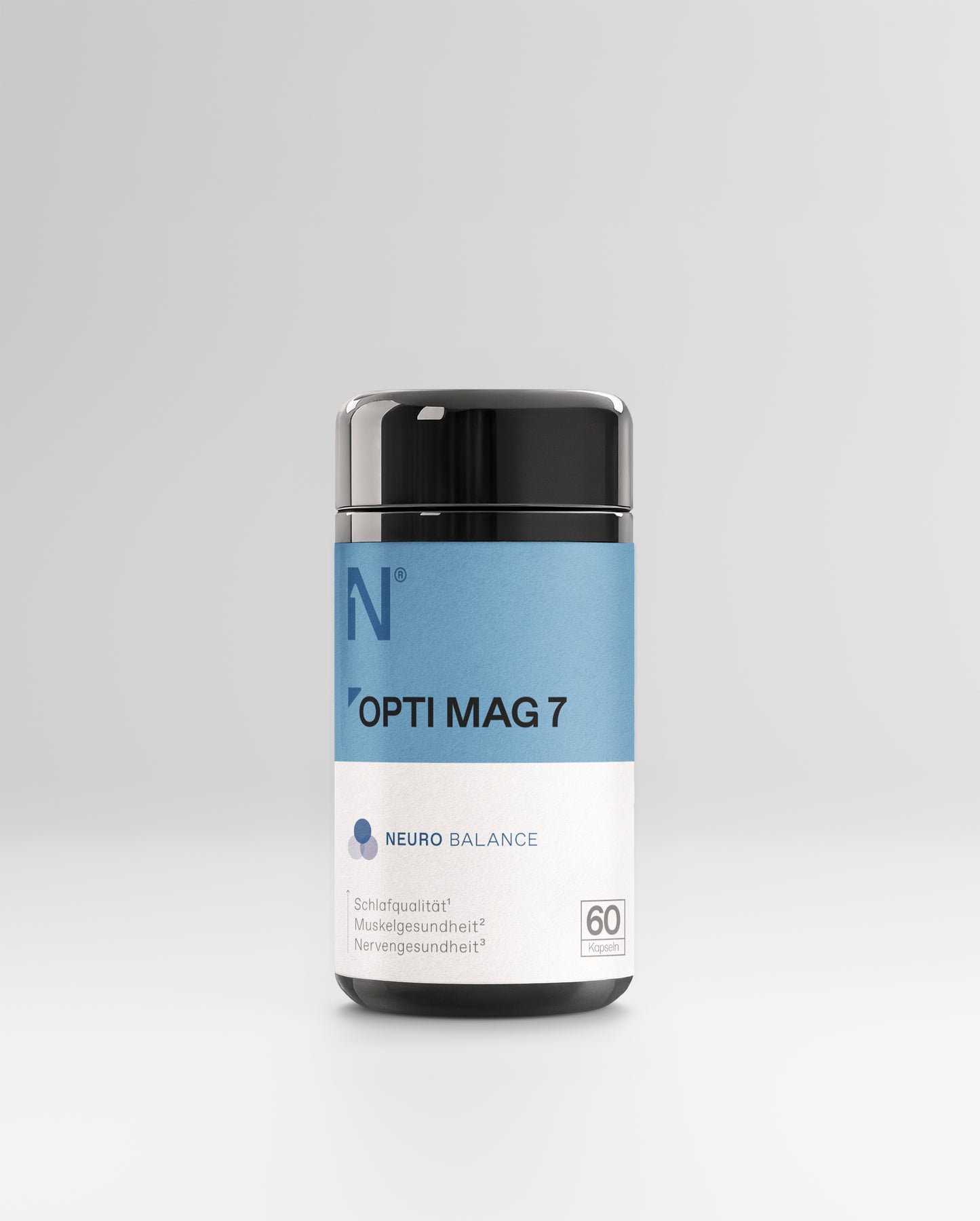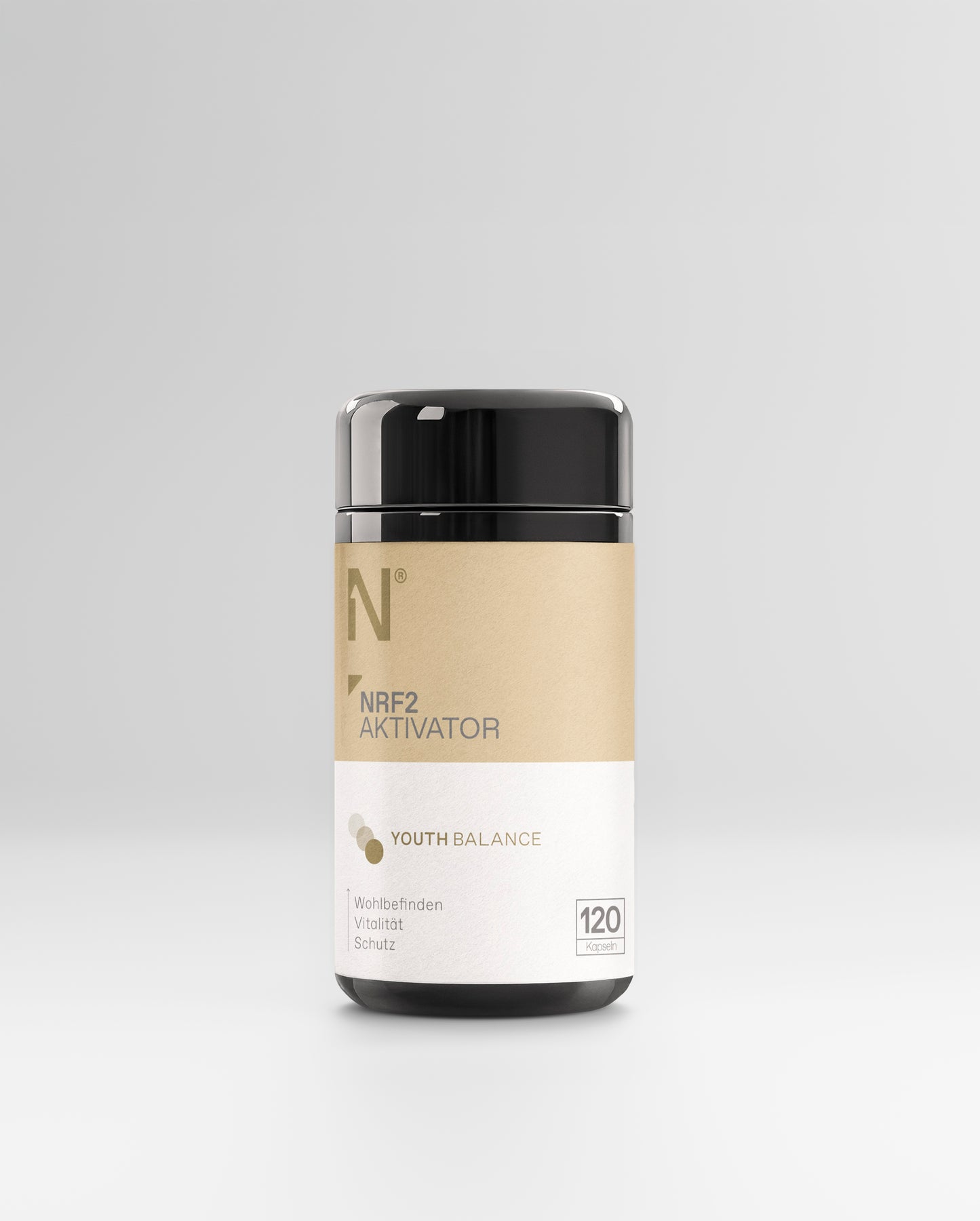Cortisol – often called the "stress hormone" – is a vital messenger produced in the adrenal glands. It belongs to the steroid hormones and plays a central role in numerous bodily functions. In the morning, when you wake up, your cortisol level peaks to activate you for the day. Throughout the day, it naturally declines and reaches its lowest point at night.
The main functions of cortisol include:
-
Stress management: In times of danger or stress, cortisol mobilizes energy reserves and prepares your body for a "fight-or-flight" response.
-
Blood sugar regulation: Cortisol helps stabilize blood sugar levels by promoting glucose release from liver stores when needed.
-
Metabolism control: It influences how your body processes carbohydrates, fats, and proteins.
-
Immunomodulation: In appropriate amounts, cortisol supports a healthy immune response and acts as an anti-inflammatory.
While short-term cortisol spikes are completely normal and even vital for survival, persistently elevated cortisol levels can significantly harm your health and should be medically evaluated. Possibly the appropriate Dietary supplements Target the deficiency specifically.
What happens with persistently elevated cortisol levels?
Chronically elevated cortisol levels can have far-reaching negative effects on your body. When your body remains in a "state of alarm" constantly, numerous health problems arise:
-
Sleep disorders: High cortisol levels in the evening can disrupt your natural sleep-wake rhythm and cause difficulties falling and staying asleep.
-
Weight gain: Fat can accumulate especially around the abdomen because cortisol promotes fat storage in the belly area.
-
Cardiovascular risks: In the long term, elevated cortisol levels can contribute to high blood pressure and increase the risk of heart disease.
-
Blood sugar problems: Constant influence on blood sugar levels can lead to insulin resistance and, in the long term, type 2 diabetes.
-
Lack of energy and irritability: Chronic stress and high cortisol levels deplete your energy reserves and can lead to irritability, concentration problems, and mood swings.
-
Immune deficiency: Over time, high cortisol levels weaken your immune system and make you more susceptible to infections and illnesses.
The good news: With natural methods, you can effectively regulate your cortisol levels and reduce stress on your body.
The best natural ways to lower cortisol
Optimize sleep
High-quality sleep is one of the most effective cortisol regulators. Poor sleep can increase cortisol levels by up to 45% the next day. For better sleep quality and a healthy cortisol balance, you can:
-
Maintain consistent sleep and wake times, even on weekends
-
Avoid screens (smartphone, TV, computer) one hour before bedtime
-
Keep your bedroom cool (16-18°C), dark, and quiet
-
Incorporate magnesium-rich foods or supplements into your evening routines
Exercise – but in moderation
Moderate exercise can lower cortisol levels and break down stress hormones, while overly intense training can increase it. Particularly effective are:
-
Regular, moderate endurance activities such as walking, swimming, or cycling (30-45 minutes, 3-5 times per week)
-
Yoga and Tai Chi, which combine movement with breathing techniques and mindfulness
-
Adequate recovery periods between intense training sessions
Studies show that regular moderate exercise can reduce cortisol levels by up to 25% in the long term.
Mindfulness & Stress Management
Mental relaxation techniques have proven to be highly effective in lowering cortisol levels:
-
Meditation: Just 10 minutes of daily meditation can measurably reduce cortisol levels.
-
Breathing exercises: Deep abdominal breathing activates the parasympathetic nervous system, your relaxation nerve, and lowers stress hormones.
-
Journaling: Writing down thoughts and worries helps to unload mental burdens.
-
Digital Detox: Regular breaks from smartphones and digital media can reduce stress reactions.
A systematic review has shown that mindfulness practices can reduce cortisol levels by an average of 19%.
Nutrition against stress
What you eat directly influences your hormone levels. A cortisol-regulating diet includes:
-
Omega-3-rich foods: Fatty fish, flaxseeds, and walnuts can reduce inflammation and contribute to cortisol regulation.
-
Magnesium-rich foods: Dark green leafy vegetables, nuts, and legumes support the nervous system and can reduce stress.
-
Antioxidant-rich foods: Berries, nuts, and colorful vegetables protect against oxidative stress.
-
Complex carbohydrates: Whole grains, legumes, and vegetables stabilize blood sugar and thus indirectly cortisol levels.
At the same time, you should limit these substances:
-
Caffeine: More than 400 mg of caffeine daily can increase cortisol levels.
-
Sugar and refined carbohydrates: They cause blood sugar fluctuations that can intensify stress reactions.
-
Alcohol: It disrupts sleep and can lead to increased cortisol levels in the long term.
Supplements for cortisol regulation – What really helps?
Certain Dietary supplements can support the body's own mechanisms for cortisol regulation. The scientific data is particularly convincing for some substances:
Ashwagandha – The Ayurvedic stress shield
Ashwagandha (Withania somnifera) belongs to adaptogens – plants that can increase the body's resistance to stress. Studies show, that Ashwagandha can reduce cortisol levels by 15-30%. The root of Indian ginseng can:
-
Improve stress resistance
-
Reduce anxiety symptoms
-
Promote sleep quality
-
Support recovery after physical exertion
For optimal results, a daily dose of 300-600 mg Ashwagandha extract is usually recommended.
Rhodiola Rosea – More energy, less stress
This arctic plant has been used for centuries in the traditional medicine of Scandinavia and Russia. Rhodiola can:
-
Regulate cortisol production
-
Improve mental and physical performance under stress
-
Counteract signs of fatigue
-
Brighten the mood
Studies show that Rhodiola can mitigate the negative effects of stress on the body and support energy production at the cellular level.
Magnesium – For better nerves and deeper sleep
Magnesium is a mineral involved in over 600 biochemical reactions in the body. A magnesium deficiency can increase stress and lead to elevated cortisol levels. An adequate magnesium supply can:
-
Calm the nervous system
-
Promote muscle relaxation
-
Improve sleep quality
-
Dampen the stress response
Particularly effective are Magnesium nutraceuticals with well bioavailable magnesium forms such as magnesium citrate, -glycinate or -bisglycinate.
Naturally lower cortisol with Nutrador® products
For targeted support in cortisol regulation, offers Nutrador® high-quality Dietary supplements, which are scientifically developed:
Opti Mag 7 Capsules
This premium magnesium product combines seven different, highly bioavailable magnesium compounds that can be optimally absorbed by the body. Magnesium contributes to:

-
A normal function of the nervous system in
-
A reduction of tiredness and fatigue
-
A healthy mental well-being
By supporting nerve function, Opti Mag 7 help to mitigate stress reactions and regulate cortisol levels.
NRF2 activator
Oxidative stress and chronically elevated cortisol levels often go hand in hand. The Nutrador® NRF2 Activator contains natural plant compounds that can activate the body's own antioxidant systems. It can:
-
Protect cells from oxidative stress
-
Modulate inflammatory processes
-
Support cell renewal

By reducing oxidative stress, the NRF2 activator can indirectly contribute to normalizing cortisol levels.
What to better avoid
Certain habits can drive cortisol levels up and should therefore be avoided as much as possible:
-
Skipping meals: Skipping meals, especially breakfast, can lead to blood sugar fluctuations that increase cortisol levels.
-
Excessive caffeine consumption: More than 3-4 cups of coffee daily or energy drinks can increase cortisol secretion.
-
Blue light before bedtime: Using smartphones and screens in the evening hours disrupts melatonin production and can disturb the cortisol rhythm.
-
Overtraining without sufficient recovery: Too intense or too frequent training sessions without adequate recovery phases can chronically increase cortisol levels.
-
Constant availability: The constant flow of information and continuous availability through digital media can lead to a chronic stress state.
Instead, the following are recommended:
-
Regular, balanced meals
-
Moderate coffee consumption, preferably not after 2 p.m.
-
Screen-free time before going to bed
-
Balanced training with sufficient recovery phases
-
Conscious "offline times" in everyday life
Conclusion on lowering cortisol
Cortisol is a vital hormone, but chronically elevated levels can cause significant health problems. The good news is that you can effectively influence your cortisol levels with natural methods:
-
Optimize your sleep through consistent routines and sleep-promoting habits
-
Incorporate moderate exercise into your daily routine
-
Practice mindfulness techniques for mental relaxation
-
Eat a balanced diet with a focus on stress-reducing foods
-
Support your body as needed with targeted supplements such as high-quality magnesium formulations or adaptogens
High-quality Nutrador® Products can support you on this path and help regulate your cortisol levels naturally. Remember: lowering cortisol is not a sprint but a marathon – consistent, small changes in daily life can have a significant long-term impact.
FAQ – Frequently Asked Questions about Cortisol and Stress Reduction
Signs of elevated cortisol levels can include sleep disturbances, weight gain (especially around the abdomen), constant fatigue despite adequate sleep, mood swings, concentration problems, and increased cravings for salty or sweet foods. With persistent symptoms, a medical professional can check cortisol levels through a saliva or blood test.
Yes, in many cases cortisol levels can be effectively lowered through natural methods such as regular exercise, stress management techniques, balanced nutrition, sufficient sleep, and targeted supplements. These approaches aim to regulate the body's stress responses and restore hormonal balance.
The effectiveness of natural methods to lower cortisol varies individually. Initial improvements can be noticeable after 2-4 weeks of consistent application. Lifestyle changes such as regular exercise and stress management techniques often show faster effects, while supplements like adaptogens typically require 4-8 weeks to reach their full effect.
Yes, with a holistic approach, cortisol levels can be maintained in a healthy range long-term. The key is integrating stress-reducing habits into daily life, a balanced diet, regular exercise, and sufficient rest. In cases of chronic stress or persistently high cortisol levels, support from a medical professional may be advisable.
Cortisol-lowering foods include dark chocolate (at least 70% cocoa content), fatty fish like salmon and mackerel (rich in omega-3 fatty acids), whole grain products, avocados, nuts and seeds, as well as fermented foods like yogurt and kefir. Magnesium-rich foods such as spinach, pumpkin seeds, and legumes can also contribute to cortisol regulation.
Legal notice regarding health-related claims:
Our information is for general informational purposes only and does not replace medical advice. Dietary supplements do not replace a balanced diet and a healthy lifestyle. Health-related claims about dietary supplements must comply with the Health Claims Regulation (EC) No. 1924/2006 and be approved by the European Food Safety Authority (EFSA). If you have health complaints or questions, please consult a doctor.












